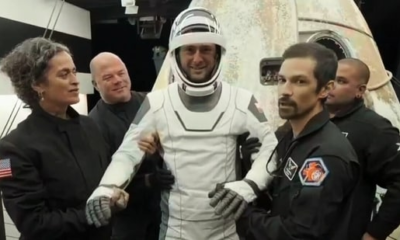Amit Shah Applauds NCB for Global Drug Cartel Bust; US, Australia Thank India
Union Home Minister Amit Shah on Tuesday congratulated the Narcotics Control Bureau (NCB) for dismantling a sprawling international drug cartel in a landmark operation that spanned four continents. The crackdown, codenamed Operation Med Max, resulted in eight arrests, the seizure of 48 consignments, and a coordinated international response from the United States and Australia—triggered by Indian intelligence.
Calling it a “shining example of multi-agency coordination” under Prime Minister Narendra Modi’s leadership, Shah praised the operation as a model for cross-border cooperation in combating narcotics trafficking. “Congratulations to NCB and all agencies on busting a global drug cartel,” Shah posted on X. “Our agencies are constantly monitoring the sophisticated modes like crypto payments and anonymous drop shippers used by these gangs.”
The US Embassy in India also thanked Indian authorities for their crucial role. “Thanks to NCB and Indian authorities for helping protect Americans against illegal drugs and saving American lives,” it said in an official post.
From Delhi to the World
The operation began on May 25 with what seemed like a routine vehicle check near Mandi House in New Delhi. NCB officers intercepted two individuals carrying 3.7 kilograms of Tramadol, a controlled painkiller. Both were Bachelor of Pharmacy graduates who confessed to operating a vendor profile on a popular Indian B2B platform, through which they sold drugs to international clients.
This minor bust led to a deeper probe that quickly revealed a much larger digital drug trafficking operation. Further arrests were made in Roorkee, Delhi, and Udupi (Karnataka), where authorities uncovered a call centre managing global drug orders. The cartel used encrypted communication apps, cryptocurrency, and drop-shipping methods to move controlled medicines from India to the US, Australia, and Europe.
Global Ripple Effect
Data recovered from the suspects revealed 50 global shipments: 29 to the US, 18 to Australia, and one each to Spain, Estonia, and Switzerland. Indian agencies immediately alerted their counterparts via Interpol, sparking international raids and arrests.
In Alabama, US authorities arrested a key re-shipper, Joel Hall, and seized over 17,000 tablets of controlled substances. Meanwhile, Australian police dismantled a pill manufacturing unit linked to the same syndicate and intercepted five parcels containing Zolpidem tablets.
Sophisticated Network with Digital Backbone
The cartel’s operations were built around a tech-savvy structure. Orders were received through premium listings on Indian B2B websites, attracting foreign clients. Payments were processed using cryptocurrency, which was then routed via complex commission layers across different countries. Repeat customers were often recruited into logistics roles, helping the network grow organically while avoiding detection.
The syndicate’s kingpin, now identified and traced to the UAE, is under close watch as Indian authorities engage with UAE counterparts to ensure his extradition.
Next Steps: Cyber & Financial Probes
With this bust revealing how modern drug trafficking is merging with digital tools, Indian agencies have intensified their focus on cyber and financial investigations. Authorities are now tracking crypto wallets, hawala transactions, and data from international logistics firms to unravel the wider network.
Operation Med Max has become a benchmark case demonstrating how digital innovation is being weaponised for illegal narcotics trade—and how coordinated international policing can effectively respond.
IT.




























